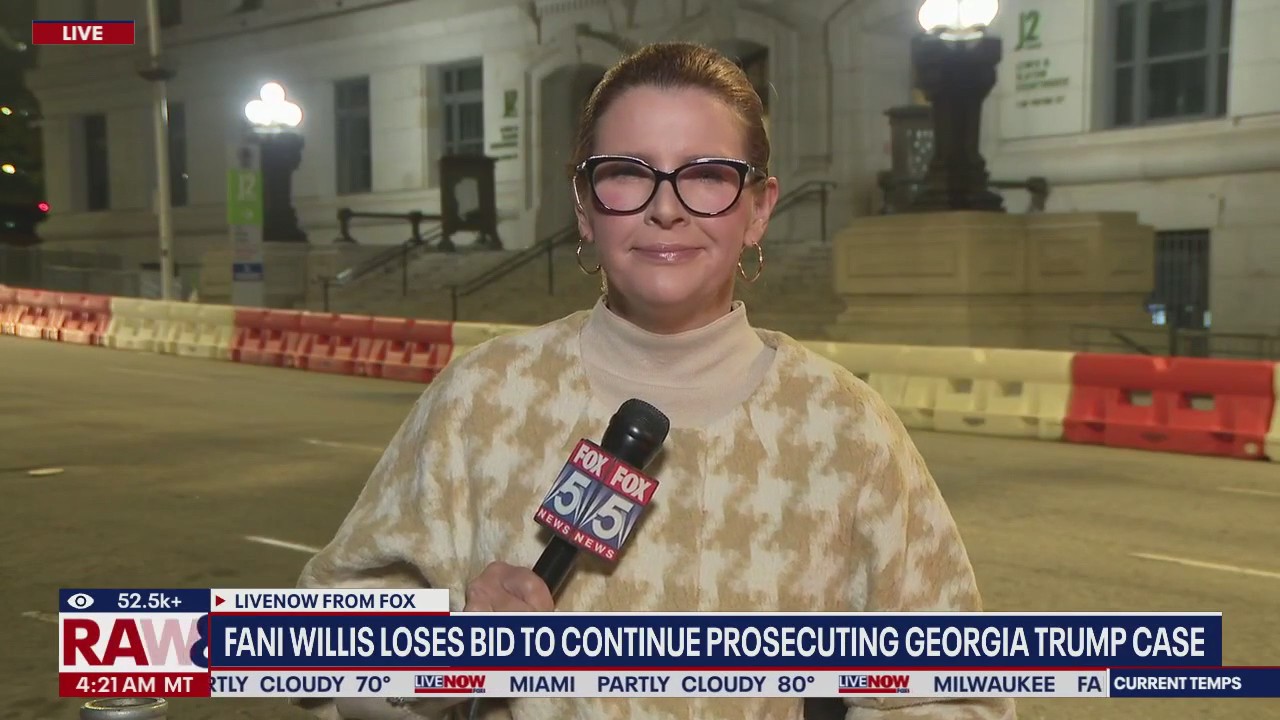Fulton County District Attorney Fani Willis, once the face of the historic prosecution against Donald Trump and allies over alleged election interference in Georgia, has been permanently barred from the case following a ruling by the state’s highest court. The decision marks a dramatic turn in a legal saga that has captivated the nation, raising questions about the future of the prosecution and the broader implications for accountability in American politics.
The Scandal That Shook the Case
The controversy began when it was revealed that Willis had a romantic relationship with Nathan Wade, a special prosecutor she hired to help lead the Trump case. Critics, including Trump himself, accused Willis of hiring her “lover” to “fraudulently make money together,” framing the prosecution as politically motivated. The allegations quickly became a rallying cry for Trump’s supporters, who saw the case as a “witch hunt,” while Willis’s defenders argued the claims were a distraction from the serious charges at hand.
The relationship between Willis and Wade became the subject of intense legal scrutiny. Fulton County Superior Court Judge Scott McAfee, who initially presided over the disqualification motion, described Willis’s conduct as a “tremendous lapse in judgment” and criticized the “unprofessional manner” of her testimony in court. McAfee also raised “reasonable questions” about whether Willis and Wade had been truthful about the timeline of their relationship. While he stopped short of immediately disqualifying Willis, he gave her a stark choice: either Wade steps down, or her entire office is removed from the case.
Wade resigned, and the case appeared set to continue—until the Georgia Supreme Court stepped in. On September 17, 2025, the court ruled that Willis must be permanently removed from prosecuting the Trump election interference case, effectively ending her direct involvement in one of the most high-profile legal battles in recent memory.
A Case Viewed Through Partisan Lenses
The Willis saga has played out against a deeply polarized political backdrop. At campaign events, Trump has repeatedly mocked Willis, drawing cheers from his base, while Willis has received vocal support from many in Atlanta’s Black community, who see her as a champion of justice. The split-screen nature of the controversy—with dueling rallies and sharply divided public opinion—has turned the case into a kind of Rorschach test for the American electorate.
Legal experts note that the case’s trajectory underscores the challenges of prosecuting powerful political figures, especially when personal conduct becomes entangled with professional duties. “The appearance of impropriety can be just as damaging as actual misconduct in high-stakes cases like this,” said one veteran Atlanta defense attorney, speaking on condition of anonymity. “It creates doubt, and doubt is the enemy of justice.”
What Happens Next?
With Willis out, the question now is who will take over the prosecution. The Georgia Prosecuting Attorneys’ Council will likely appoint a new attorney to lead the case, but the transition could delay proceedings and inject further uncertainty into an already complex legal fight.
The case itself remains significant: Trump and more than a dozen co-defendants are accused of participating in a wide-ranging conspiracy to overturn the 2020 presidential election results in Georgia. The charges include racketeering, solicitation of election fraud, and conspiracy, and carry the potential for serious penalties if convictions are secured.
Broader Implications for Justice and Politics
The removal of Fani Willis is more than a legal footnote—it’s a case study in how personal scandals can derail even the most consequential prosecutions. It also highlights the intense scrutiny faced by prosecutors in politically charged cases, where every decision is dissected for signs of bias or impropriety.
For Willis, the ruling is a major professional setback, but she has signaled her intention to continue serving as Fulton County’s top prosecutor, recently announcing her re-election campaign to cheers from supporters. For Trump, the development is a temporary victory in his ongoing legal battles, though the underlying case against him and his allies remains active.
Expert Commentary
“This is a cautionary tale for any prosecutor handling a high-profile case,” said a former federal prosecutor. “The optics matter as much as the law, and any misstep can have far-reaching consequences.” Others point out that the case’s delays and distractions risk undermining public confidence in the justice system at a time when faith in institutions is already fragile.
Key Takeaways
-
Fani Willis has been permanently removed from prosecuting the Trump Georgia election interference case by the state’s highest court.
-
The decision stems from her romantic relationship with a subordinate prosecutor, which created an “appearance of impropriety”.
-
The case against Trump and his co-defendants will continue, but with a new lead prosecutor.
-
The controversy has deepened political divisions and raised questions about the intersection of personal conduct and professional responsibility in high-stakes legal cases.
Looking Ahead
The Georgia election case is far from over, but the removal of Fani Willis marks a pivotal moment. As a new prosecutor takes the helm, the legal and political drama is sure to continue, with the eyes of the nation—and history—watching closely.
Sources
1. Fani Willis removed from prosecuting Trump's Georgia election ...
2. The Fani Willis fight: How it played out - Atlanta Journal-Constitution
3. New Legal Trouble For Fani| Donald Trump | Georgia Case Hearing
